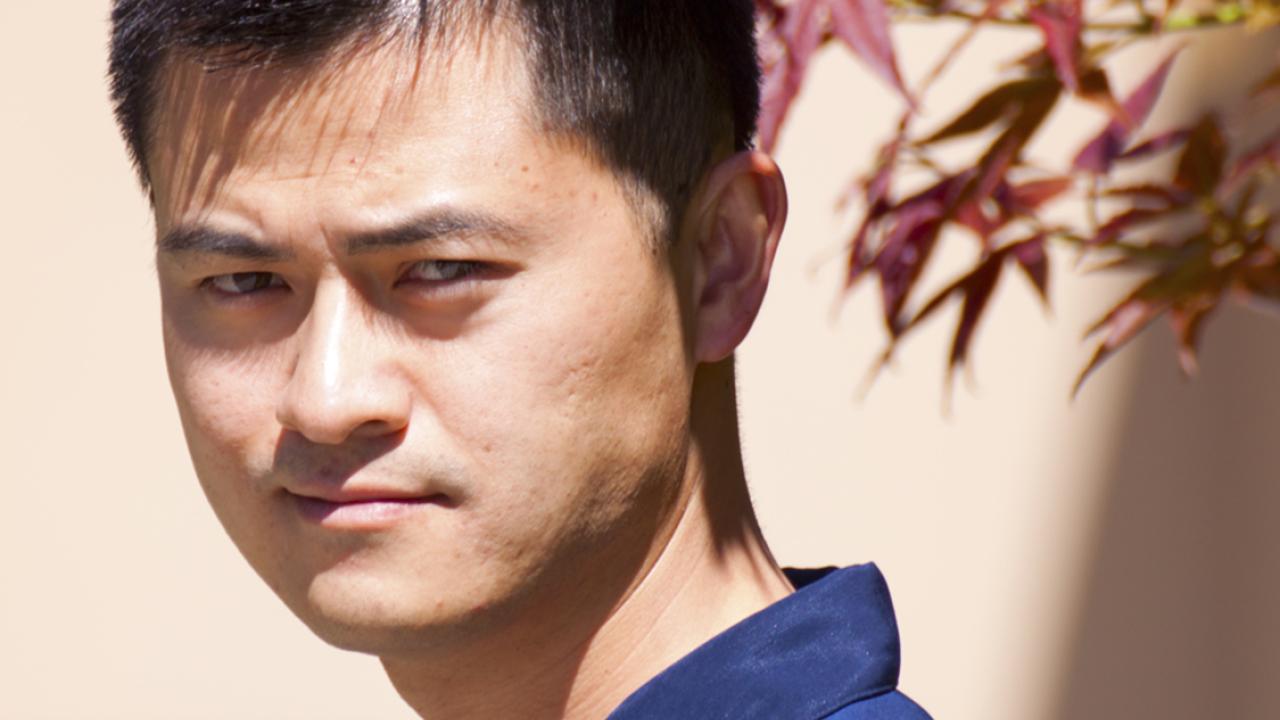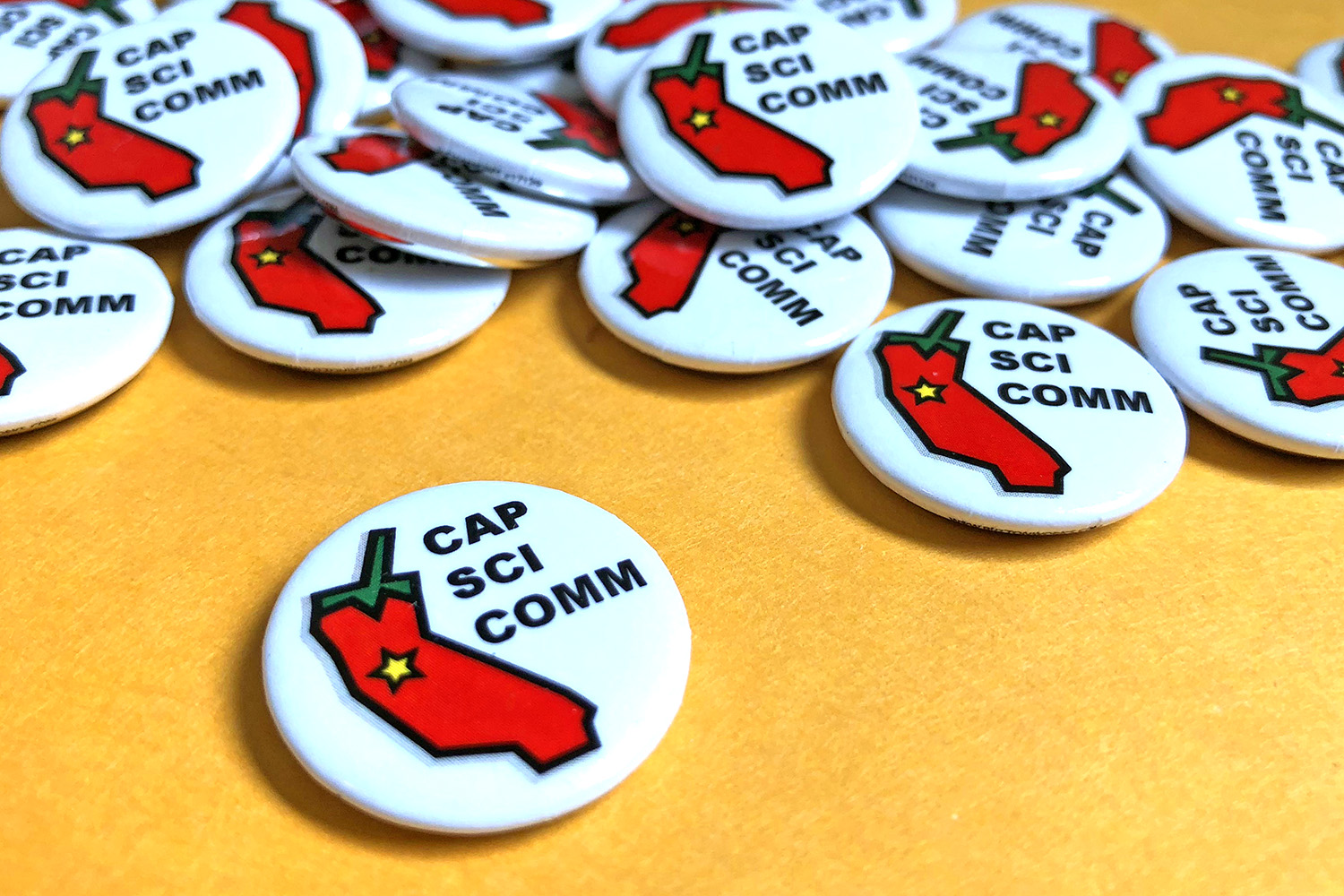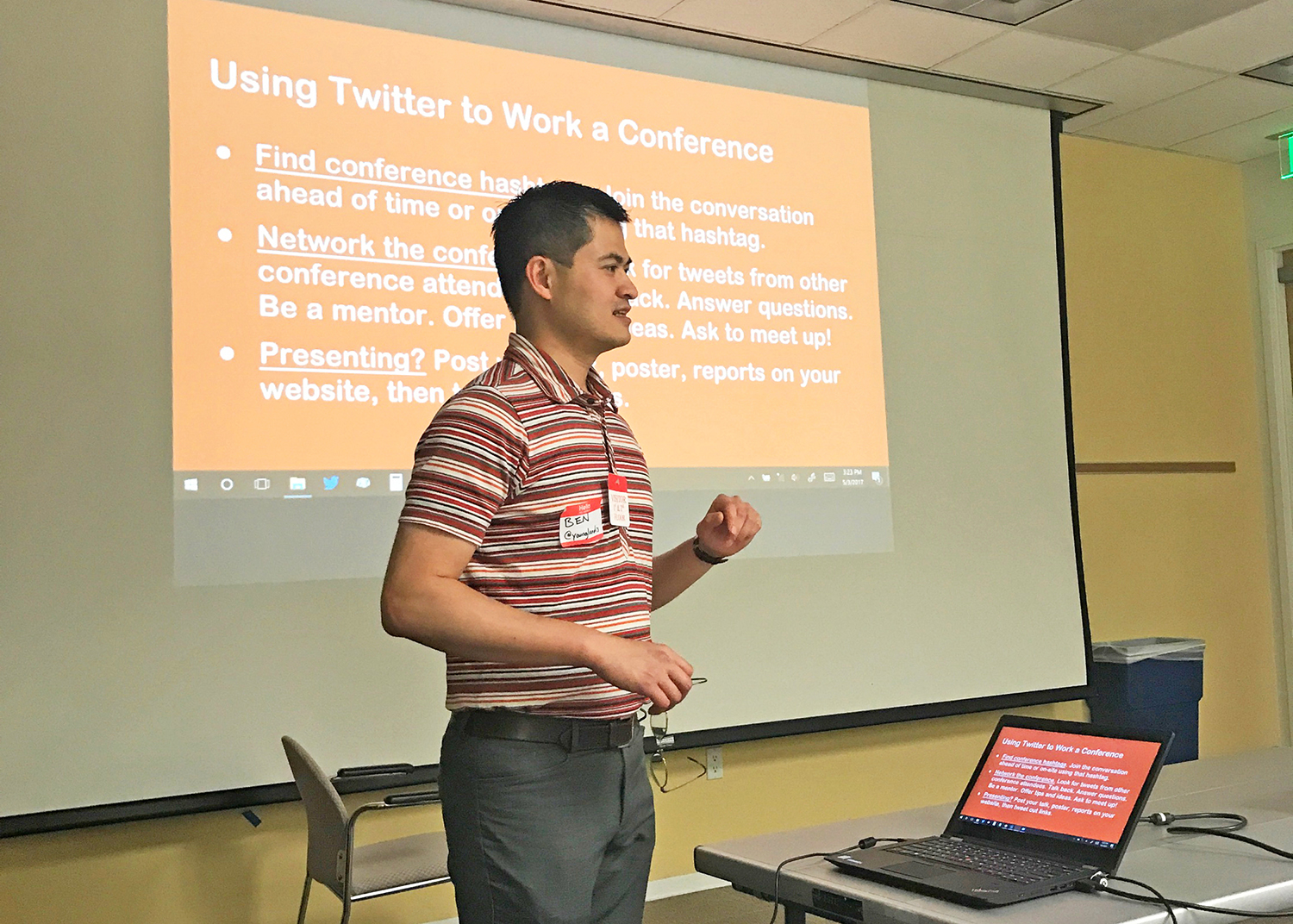
Ben Young Landis, ’03 B.A. in Evolution and Ecology, Founder and Executive Chair of Capital Science Communicators
How do you communicate science to different demographics? Could you explain the necessity of chlorophyll and make it relatable to an audience of mothers? Or share the importance of composting to hunters? How about explaining groundwater to investment bankers?
As an independent communications consultant and founder and executive chair of the professional network Capital Science Communicators, Ben Young Landis strategizes methods to communicate science to both general audiences and other groups from non-scientific backgrounds. To do so effectively, he takes cues from marketing principles.
Advertisements—at least, successful advertisements—stick in the brain. Say the words, “Just Do It,” and most people know you’re quoting a Nike slogan. Or show a video of an egg frying in a pan, and it may conjure the tagline, “This is Your Brain on Drugs.”
“That slogan—even after 30 years—we still remember it,” said Landis. “Why can’t we use those same marketing and advertising techniques to communicate science accurately with panache and emotion?”

Sharing the big picture of science
Landis has made an unexpected career of his passion. Though he enjoyed writing and reading from an early age, gobbling up the works of Dave Barry and Carl Hiaasen, he never considered writing as a profession. Growing up in South Florida, Landis spent his youth snorkeling in the waters near Fort Lauderdale, collecting specimens for his home aquariums.
“If you’d asked me at the time, ‘what do you want to do and what are your hobbies?’ I’d reply, ‘I like fishing and I want to be a scientist,’” he said.
Initially drawn to UC Davis for its wildlife sciences and ecology programs, Landis found he excelled at narrative and technical writing courses. His involvement in the Integrated Studies Honors Program taught him the value of interdisciplinary problem-solving, and he decided to minor in education. The confluence of his courses—including education philosophy and animal behavior—revealed parallels between his various academic pursuits.
“In biology and ecology, we think of reproduction so much as genes reproducing genes, or genetic material being passed on,” said Landis. “But education is how our culture reproduces.”
While pursuing his undergraduate degree, Landis learned the ins and outs of scientific pursuit as an employee of an aquatic ecology lab housed at the John Muir Institute of the Environment.
“I dealt with a lot of different stakeholders early on, from clients in the state government to colleagues and administrators on campus,” Landis said. “It really helped me understand science from a holistic perspective, the operation of science as well as the academic pursuit of science.”
After graduation and working at the John Muir Institute for another three years, he pursued a master’s degree in environmental management at Duke University. He then began an AAAS Mass Media Science and Engineering Fellows Program and spent 10 weeks working as a reporter for the Orange County Register.
“It was there that I knew I found my vocation,” Landis said. “Everything clicked. I thought, maybe I won’t do research, but I’ll be the storyteller.”
Growing the science communicators community in Northern California

Landis returned to his adopted home of Sacramento following his journalism fellowship, taking a science communication position with the United States Geological Survey. But something was missing. At Duke, he’d found a likeminded community of science lovers in the organization Science Communicators of North Carolina.
“I realized I wanted to find that same community, but I didn’t know how, partly because it didn’t exist,” he said.
So Landis became proactive. He wanted to create an organization similar to the Sacramento Press Club and Sacramento Public Relations Association, but specifically for science communicators. He gauged the interest of those in his professional network and started building what would eventually become Capital Science Communicators.
Today, the organization boasts some 600 members and will celebrate its fifth anniversary in April. On top of hosting networking events, Capital Science Communicators has partnered with groups like UC Davis’ Science Says and the Powerhouse Science Center to offer science talks and cafes around the area, such as Sac Science Distilled. The organization’s membership includes journalists, policymakers, scientists and public information officers, among others.
“As long as your work intersects with the need for communicating science, you’re welcome,” said Landis.
Landis left his position with the USGS in 2015. He now works as an independent communications consultant, with one of his main clients being the California Council on Science and Technology, though he still devotes much of his time to increasing the visibility of Capital Science Communicators.
“If we can help cultivate science communicators, we will do our small part in promoting and sustaining science literacy in the capital region,” he said.
